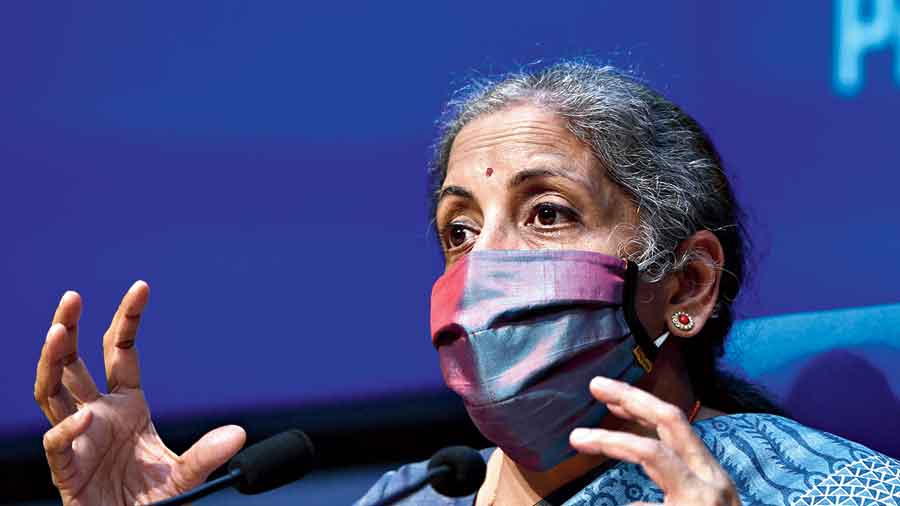Finance Minister Nirmala Sitharaman on Monday said she expects inflation to remain in the prescribed range during the current fiscal and the government is regularly monitoring the price movement of essential items.
The RBI has been mandated to keep inflation at 4 per cent, with a tolerance level of 2 per cent on either side.
Speaking to media, she said the Group of Ministers is actively monitoring price movement of essential items like edible oil, pulses, fruits and vegetables, meat etc.
She appreciated that states have been very cooperative in terms of going after hoarders and black marketeers.
Various efforts taken by the government are expected to keep inflation benign, she said, adding it is expected to remain within the target.
She expressed confidence that the revenue would be buoyant in the coming months. Both Goods and Services Tax (GST) and direct taxes have improved in the past few months, the minister said.
The GST collection this year has improved substantially and as a result there are chances that the government may be able to pay compensation to states from revenue collected, she said.
Asked about extending compensation beyond July 2022, she said the GST Council will decide about the issue.
On the Indian investment in Afghanistan, she said it is too early for her to comment on that.
Defending the controversial comment made by Commerce and Industry Minister Piyush Goyal, she said, "He shared his anguish about small trader and small business."
"It was with clear intention of wanting to appeal to industry to also help small industry," she said.
Speaking at a CII plenary session, Goyal reportedly asserted that the business practices of Indian industry went against national interests.
On the demand pick up, she said there is enough liquidity in the market and credit growth is expected to pick up in the coming festive season.
She said she would meet the heads of public sector banks next week and review the progress made on implementation of various schemes announced by the government, including Emergency Credit Line Guarantee Scheme (ECLGS).
As a result of the government's strategy of recognition, resolution, recapitalisation and reforms, NPAs have since declined to Rs 7,39,541 crore on March 31, 2019, Rs 6,78,317 crore on March 31, 2020 and further to Rs 6,16,616 crore as of March 31, 2021 (provisional data).
At the same time comprehensive steps were taken to control and to effect recovery in NPAs, which enabled PSBs to recover Rs 5,01,479 crore over the last six financial years, the government informed Parliament recently.
As far as credit growth of scheduled commercial banks (SCBs) is concerned, it has remained positive for 2020-21 despite contraction in GDP (-7.3 per cent) due to the Covid-19 pandemic.
Gross loans and advances outstanding of SCBs increased from Rs 109.19 lakh crore as of March 31, 2020, to Rs 113.99 lakh crore as of March 31, 2021. Agriculture and allied activities, micro, small and medium enterprises, housing and auto have witnessed a year-on-year growth of 12.3 per cent, 8.5 per cent, 9.1 per cent and 9.5 per cent, respectively, during the year.
Notwithstanding economic disruptions caused by the pandemic, PSBs have managed to raise a record Rs 58,700 crore from markets in 2020-21 through a mix of debt and equity to enhance capital base. As a result capital to risk weighted assets ratio rose to 14.04 per cent as of March 31, 2021, as against regulatory requirement of 10.875 per cent boosting the ability of PSBs to further increase lending.
As a result, PSBs in aggregate recorded a profit of Rs 31,816 crore, the highest in five years, despite 7.3 per cent contraction in economy in 2020-21.











